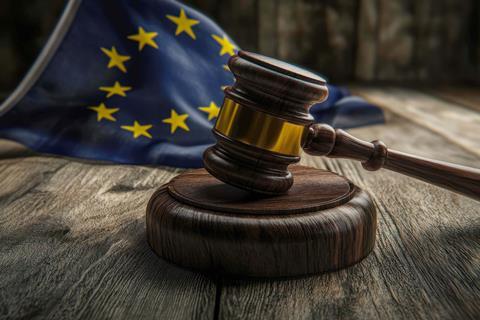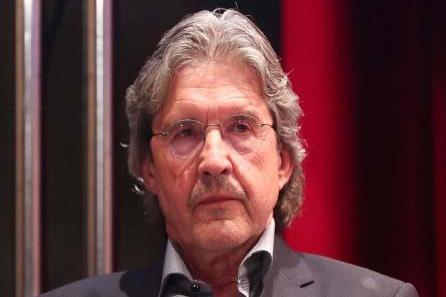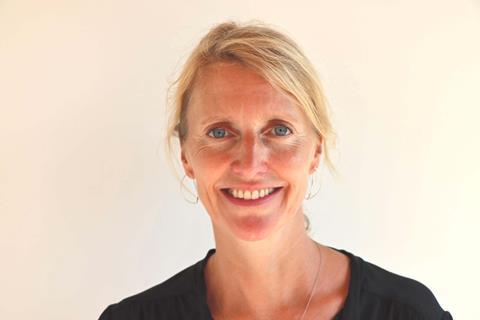
Last August, Netflix quietly filed an appeal in the Constitutional Court of Belgium. It was protesting a new law increasing financial obligations up to 9.5% on streamers in the country’s French-speaking Wallonia-Brussels region.
Few headlines were generated at the time, even when Disney joined the case as an interested party in November. The lack of press coverage was perhaps not surprising: the small Wallonia-Brussels Federation is one of the three federated communities of Belgium, home to 4.6 million French-speaking residents of Brussels and Wallonia — about 1% of the EU population.
But, in the wake of US president Donald Trump launching his tariff war, the case has suddenly assumed huge significance for the European production sector. Some European execs think Netflix and Disney have strategically turned their firepower onto a small target.
For them, the Wallonia-Brussels appeal — set to go to court later this year — is part of a Trojan horse strategy. They believe the streamers’ ultimate aim is for the Belgian court to refer the case to the European Court of Justice as part of a wider challenge against the EU’s Audiovisual Media Services Directive (AVMSD). For their part, the streamers regard the financial obligations imposed by Wallonia-Brussels as onerous given the size of the region, unworkable because of its small creative community, and contrary to the principles of the EU single market.
Directive rules
AVMSD allows EU states to impose financial obligations on broadcasters and streamers to support the production of European works. Some 16 countries, including France, Denmark, Spain and Italy, have so far imposed financial obligations, leading to a surge of funding for local films and TV shows.
According to France’s CNC, European countries that have introduced financial obligations saw global streamers increase their number of scripted commissions in Europe by 140% between 2020 and 2024, against a 1% increase in countries without. In France, where streamers must invest a minimum of 20% of their net French revenue in European works, Disney+, Netflix and Prime Video invested $981m (€866m) in 2021-23 as part of their obligations.
Wallonia-Brussels argues it needs such investment to allow its French-speaking community to flourish culturally and prevent it from being drowned out by content from its larger neighbour France. Therefore it has mandated a financial obligation of 2% to 9.5% of turnover to be spent on Belgian French-language independent productions in the region for both broadcasters and streamers.
The 2% figure applies to operators with a net turnover of more than $793,000 (€700,000) but less than $11.4m (€10m). It then rises on a sliding scale depending on turnover, all the way up to the maximum 9.5% figure that only applies to operators with a net turnover of more than $170m (€150m) in the region.
“Neither Netflix, Disney nor any other broadcaster currently has such a turnover,” says Delphine Mougenot, secretary general of the region’s UPFF+ producer group. She estimates that Disney is far from the maximum rate, while Netflix is much lower.
The rules enacted are complex but essentially aim to foster cultural diversity. Broadcasters and streamers can fulfil their obligation by pre-buying, developing and/or co-producing independent works. A certain amount of the money can go on training, accessibility or dubbing and subtitling. Licensing and purchasing rights do not count (the aim is to generate new works), neither do commissions where the broadcaster or streamer retains all rights. Pre-buys and co-productions are excluded if they count towards another country’s investment obligation system.
Alternatively, broadcasters or streamers can pay the fee direct to Wallonia-Brussels Federation’s film and TV funding organisation Centre du Cinéma et de l’Audiovisuel in the form of a levy.
Trumpian times
The case has taken on greater significance since Trump came to power. In February, he took aim at the AVMSD rules in a White House memo that specifically highlighted legislation that “require[s] American streaming services to fund local productions” in many countries around the world.

For many, the Wallonia-Brussels case is shaping up to be a key battleground over AVMSD. “For Netflix and Disney, who are backed by the MPA [Motion Picture Association], it’s a way to attack the whole AVMSD system in Europe,” argues Chris Marcich, president of the European Film Agencies Directors association (EFAD), which represents 38 national film agencies in Europe. “Netflix and Disney have picked on Wallonia-Brussels because they think it’s a place where they can show that the measure is disproportionate. But the streamers will never have the amount of business in Wallonia-Brussels that would force them to contribute 9.5%.”
“We can feel the pressure,” adds Jeanne Brunfaut, director of the region’s Centre du Cinéma et de l’Audiovisuel. “But we need to face up to it. With everything that is coming out of the US at the moment, we need Europe to be strong.”
Brunfaut says her region feels supported by EFAD, which she also chairs, and also by countries that have similar obligations, particularly France. She hits out at accusations the obligations are unworkable because the region has a small creative community. “I guess we are such a small market that they just don’t want to waste time with us, but there’s good content here for them. It’s not fair to say there isn’t any content,” says Brunfaut, citing recent hit films such as Solange Cicurel’s TKT and Michiel Blanchart’s Night Call (La Nuit Se Traîne).

For their part, the streamers highlight their contributions to the European creative community. Netflix, for example, says it has invested $7.4bn (€6.5bn) in European series and films between 2020 and 2023. For the streamers, the regulations are convoluted and more demanding than most larger countries in Europe. As a point of reference, the obligation in neighbouring Flanders is 2%-4%, rising to 5% in Denmark and the Netherlands, 16% in Italy and 20% in France.
Netflix has said it will comply where regulations exist. “What’s important to us is that we want them to be fair, we want them to be predictable,” Larry Tanz, the streamer’s vice president of content for EMEA, told Screen International in 2023.
The patchwork of obligations now in place across Europe are certainly varied. In this, the streamers may be pushing at an open door with the European Commission, where some are understood to think the different obligations are contrary to the spirit of the EU single market.
In a statement to Screen, Netflix said: “We’ve worked closely with Europe’s regulators and governments to adopt national investment obligations as part of the Audiovisual Media Services Directive. However, we believe the new investment obligations proposed by the Wallonia-Brussels Federation are unworkable and contrary to the principles of the single market and so have reluctantly decided to challenge them in court.”
A Disney spokesperson said to Screen: “We have a long history of storytelling in Europe and support investment and cultural diversity. We have filed an intervention in support of Netflix’s appeal brief within the appropriate legal channels. We share Netflix’s view that as implemented, the regime in Wallonia goes beyond the AVMSD and undermines consumer choice, competition and the advancement of the EU single market.”
The contrasting views of the streamers and Wallonia-Brussels will be put under the microscope in a Belgian court in the coming months. A referral to the European Court of Justice would likely prolong the process by a year or two. The result could be hugely consequential for the European industry.

























No comments yet